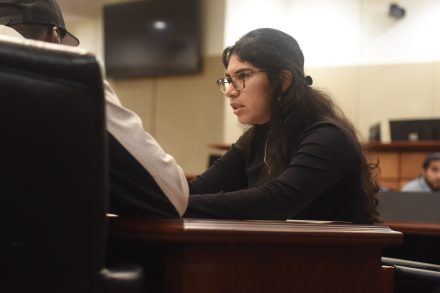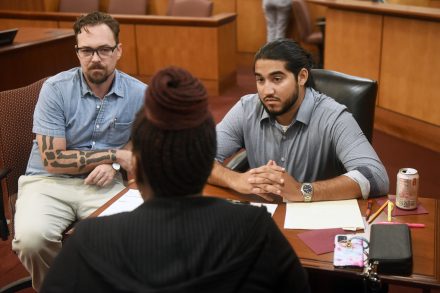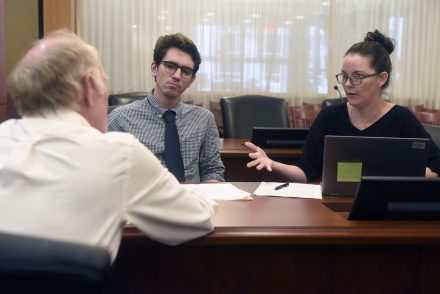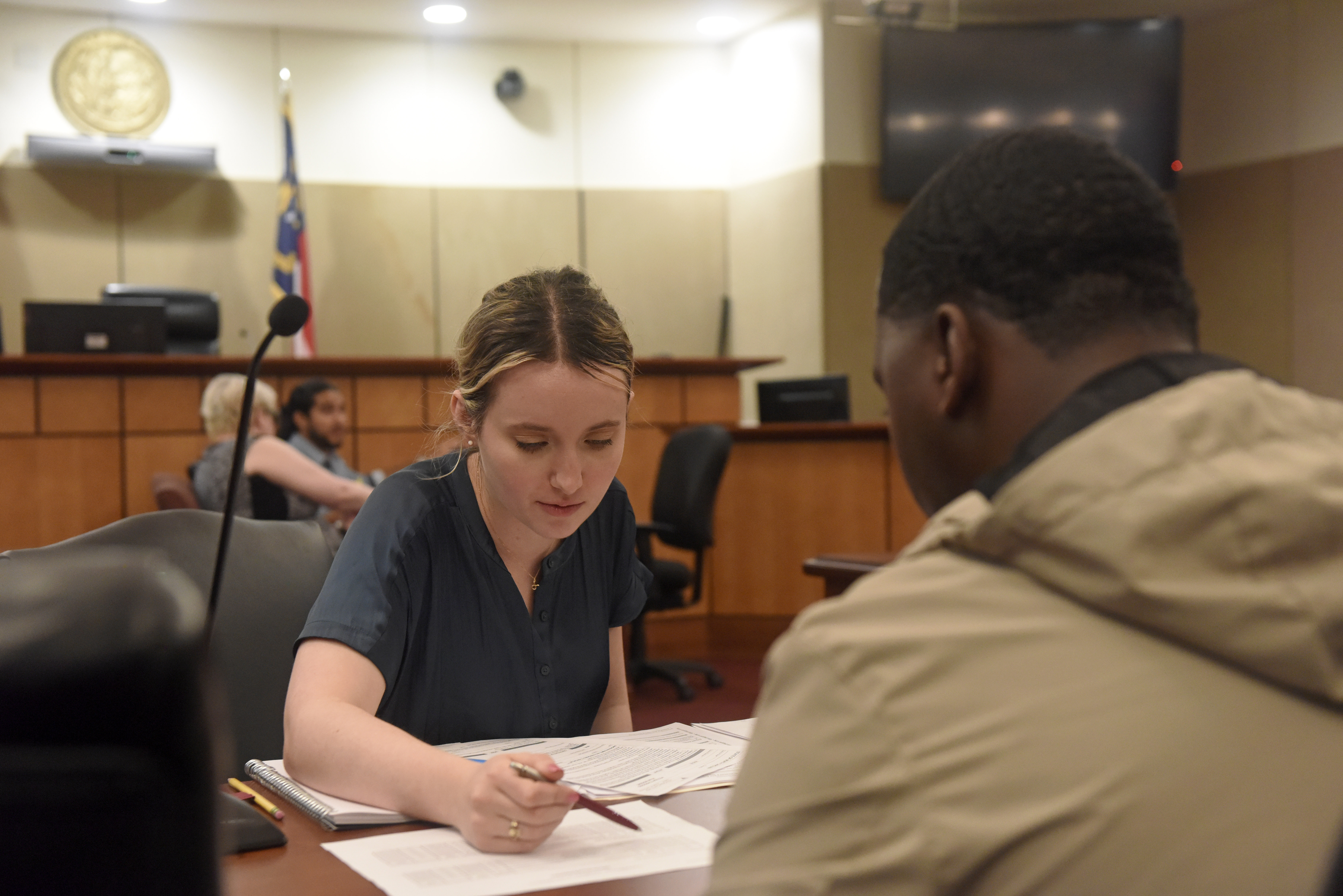Law students partnered this fall with attorneys from Legal Aid of North Carolina and their Elon Law faculty mentors to help residents of Guilford and Durham counties with applications to remove criminal charges from background records.
A criminal charge, and certainly a conviction, can impact your future in any number of ways: job opportunities, housing options, gun ownership, even your right to vote.
What might be worse? Having opportunities denied even when criminal charges were dismissed, you were found not guilty in court, or you completed a sentence for a nonviolent offense, all of which still appear in public records and routine background checks.
Recognizing the lasting effects of “one bad day” for many people, and preconceptions that can follow someone even if found not guilty or charges were dismissed, student leaders worked this fall with Legal Aid of North Carolina to host Elon Law’s first ever Criminal Expunction Project.

The goal: expand access to justice by reviewing criminal backgrounds and assisting clients with their applications to the State of North Carolina for the permanent removal or destruction of qualifying court records.
Ten students, Legal Aid attorneys, and Elon Law faculty and staff worked on a damp Saturday with two dozen clients who visited downtown Greensboro or met virtually via Zoom to see what might be possible for each unique story.
One client shared interest in legally owning a firearm to go with friends to a shooting range. Others are eyeing job opportunities where a background check poses complications. One woman wants to look her child in the eye to say she has a clean criminal record.
“This service is offered mostly by private attorneys, which means that often, the only people getting their records expunged are people of means,” said Nina Palamaris L’23, a former president of the Women’s Law Association who co-led the project with classmate Matt Marino L’23. “If you don’t have the means to afford filing fees and attorney fees, you’re not going to be able to get whatever can be removed from your record taken off. We wanted to fill this gap.”

Not every visitor to Elon Law on October 14, 2023, could be fully helped. A few were convicted of felonies that don’t qualify for expungement under North Carolina law. Though some clients expressed frustration at their situations, organizers noted the importance of such moments for student volunteers.
“You’re learning how to deliver disappointing news, how to soften that blow, and how to talk about things that are uncomfortable,” said Legal Aid attorney Emily Mistr. “Sometimes, they’re uncomfortable for the student, and sometimes they’re uncomfortable for the client, and sometimes it’s both. Giving students the opportunity to have these conversations through direct client services is something they don’t often get in law school.”
Palamaris and Marino, with guidance and support from Professor Catherine Dunham, now hope to make the project an annual opportunity for Elon Law students to gain practical experience while serving the community.

“Talking with clients can be difficult,” said Marino, the former president of both the Criminal Law Society and Elon Law’s First Generation Society. “We need to explain complex legal jargon in a way they understand. … In the real world, lawyers are constantly helping clients, and this is an interesting way of going about it.”
Nor will the project be limited to students planning careers in criminal law. There is, however, at least one prerequisite. “You have to want to help people,” Marino said. “Above all else, that’s what we do.”
Student Reflections on Work in the Criminal Expunction Project
- “A lot of times, people have things on their record and they weren’t convicted – things like assault or a sex offense – and when someone sees that, you make assumptions, even if the person didn’t do it. You don’t have to do much work to get records expunged – you just need to go through the proper channels. It makes a huge difference with getting a job and a place to live. It’s rewarding to be able to help a person and you don’t have to go to trial.” – Michael McCord L’23
- “It’s made a huge impact on my perception of the legal system and the value of client interactions. I signed up because I wanted more of this kind of experience while I’m still in law school. I’m going into private practice in a civil capacity, and I wanted to gain skills so that I could have something to use for pro bono work in the future.” – Timberly Southerland L’23
Elon Law Student and Faculty/Staff Volunteers
- Matt Marino L’23
- Nina Palamaris L’23
- Jennifer Benavides L’24
- Anthony Bland L’23
- Emma Friedland L’24
- Michael McCord L’23
- Siobhan Petracca L’23
- Nathaniel Pool L’24
- Timberly Southerland L’23
- Nick Weinrib L’23
- Professor Catherine Dunham
- Assistant Professor Bob Minarcin
- Krista Contino Saumby, Associate Director of Career Development



